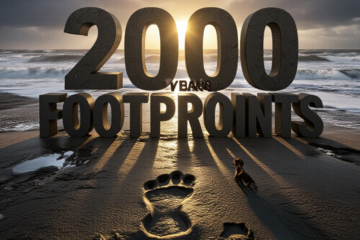A 17-year-old teenager in the United Kingdom has received a 10-year prison sentence for plotting an arson attack on a mosque in Greenock, Scotland. Police arrested him in January 2025 outside the Inverclyde Muslim Centre with an airgun and aerosol cans, stopping his plan to set the building on fire and kill worshippers inside.
Background of the Incident
The teenager, whose name remains protected due to his age, had been radicalized online since he was 13. He idolized figures like Adolf Hitler, Benito Mussolini, and Norwegian mass murderer Anders Breivik. Court records show he developed strong far-right views, including sympathies with the Nazi Party.
Investigators found a list of his inspirations on his devices, which fueled his intent to commit mass murder. He even befriended the mosque’s imam to scout the building’s layout using his phone. This level of planning raised alarms about growing extremism among young people exposed to harmful content on social media.
The arrest happened just as he prepared to act, preventing a potential tragedy. Local authorities praised the quick response from police, who acted on tips about suspicious behavior near the mosque.

Details from the Court Proceedings
At the High Court in Glasgow, Judge Lord Arthurson described the plot as a diabolical atrocity involving extreme violence and multiple deaths. The teenager pleaded guilty to terrorism charges, including preparing acts of terrorism and possessing weapons.
Prosecutors presented evidence of his online activities, where he researched arson methods and expressed hatred toward Muslims. The court heard how he intended to use the aerosol cans as improvised flamethrowers to trap and harm people inside the mosque.
During sentencing on August 21, 2025, the judge emphasized the need to protect society from such threats. The teenager will start his sentence in youth custody before moving to an adult prison. This case marks one of the youngest individuals convicted of terrorism in recent UK history.
Experts note that similar incidents have increased, with UK counter-terrorism units handling over 200 cases involving minors in the past year alone.
Here is a timeline of key events in the case:
- January 2025: Teenager arrested outside the mosque with weapons.
- March 2025: Formal charges filed for terrorism offenses.
- July 2025: Guilty plea entered in court.
- August 21, 2025: Sentenced to 10 years in prison.
Impact on the Community
The plot shook the Muslim community in Inverclyde, a area with a small but vibrant population of worshippers. Mosque chairman Mohammed Akhtar expressed shock but also forgiveness, stating that the teenager and his family deserve sympathy during this tough time.
Community leaders held meetings to discuss safety measures, leading to increased security at religious sites across Scotland. Interfaith groups have called for better education on extremism in schools to prevent similar radicalization.
Residents reported feeling more anxious, but many praised the justice system’s swift action. This event ties into broader trends, with UK hate crimes against Muslims rising by 15 percent in 2024, according to official statistics.
Local organizations now offer support programs for at-risk youth, aiming to counter online radicalization through counseling and awareness campaigns.
Broader Context of Extremism in the UK
This sentencing comes amid a wave of far-right incidents in the UK. Recent riots in cities like Southport and Rotherham involved attacks on mosques and asylum centers, leading to hundreds of arrests.
Government data from 2025 shows a spike in terrorism referrals, with over 3,000 cases linked to extreme right-wing ideologies. Young people make up a growing portion, often influenced by social media platforms that fail to curb hateful content.
Comparisons to past cases, such as the 2019 Christchurch mosque attacks inspired by Breivik, highlight the global nature of this threat. UK officials have ramped up efforts, including new laws to monitor online extremism.
To understand the rise in such cases, consider these factors contributing to youth radicalization:
- Easy access to extremist forums on social media.
- Economic hardships pushing vulnerable teens toward hate groups.
- Lack of mental health support in schools.
- Influence from international events amplifying anti-Muslim sentiments.
Reactions and Future Implications
Public reactions have been mixed, with some calling the sentence too harsh for a minor, while others see it as a strong deterrent. Advocacy groups argue for rehabilitation over long prison terms, pointing to successful programs in Norway that reformed extremists.
The case has sparked debates in Parliament about tightening social media regulations. Prime Minister’s office announced plans for a 2026 task force to address online hate, building on existing counter-terrorism strategies.
Experts predict more such trials as investigations uncover similar plots. This underscores the ongoing challenge of balancing free speech with public safety.
| Key Statistics on UK Hate Crimes (2024-2025) | Figures |
|---|---|
| Total reported hate crimes | 145,214 |
| Rise in anti-Muslim incidents | 15% |
| Terrorism arrests involving minors | 250+ |
| Extreme right-wing referrals | 3,000 |
As this story develops, share your thoughts in the comments below. What steps do you think should be taken to prevent youth radicalization? Your input could help spark important discussions.


















